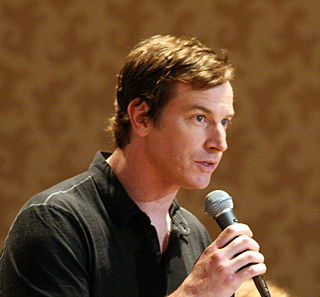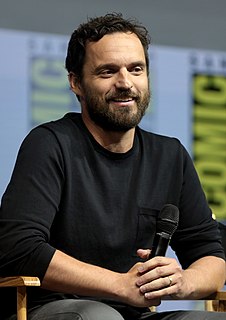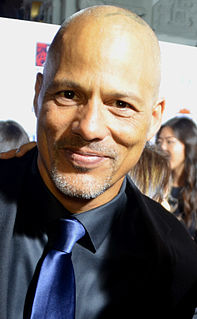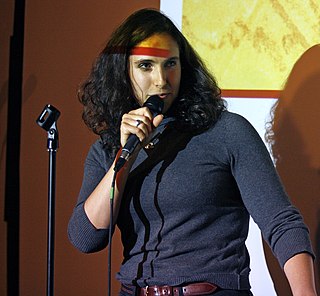A Quote by Aaron Sorkin
When I create a TV show, it's so that I can write it. I'm not an empire builder; my writing staff is usually a combination of two kinds of people - experts in the world the show is set in, and young writers who will not be unhappy if they're not writing scripts.
Related Quotes
The cool thing about 'Transparent' is that the show is funny but not like a sitcom is funny. It all comes down to the writing... The writers on that show are so good that you don't have to worry about anything. There are so many things that can go wrong making a TV show or a movie, but if the writing's good, that's, like, 95 percent of it.
I'm not disciplined in terms of scheduling. I work best late at night, but I can't do that when I'm on a TV show - our hours are roughly 10-6:30, so I have to go to sleep at a reasonable hour. So I'll sometimes write fiction for an hour or two in the evenings, or several hours on the weekend afternoons - unless I'm actively writing a script for the show I'm working on, in which case there's no time to write fiction at all.
Writing has nothing to do with publishing. Nothing. People get totally confused about that. You write because you have to - you write because you can't not write. The rest is show-business. I can't state that too strongly. Just write - worry about the rest of it later, if you worry at all. What matters is what happens to you while you're writing the story, the poem, the play. The rest is show-business.
The most common thing I find is very brilliant, acute, young people who want to become writers but they are not writing. You know, they really badly want to write a book but they are not writing it. The only advice I can give them is to just write it, get to the end of it. And, you know, if it's not good enough, write another one.
People who write for reward by way of recognition or monetary gain don't know what they're doing. They're in the category of those who write; they are not writers. Writing is simply something you must do. It's rather like virtue in that it is its own reward. Writing is selfish and contradictory in its terms. First of all, you're writing for an audience of one, you must please the one person you're writing for. Yourself.
The secret to writing is just to write. Write every day. Never stop writing. Write on every surface you see; write on people on the street. When the cops come to arrest you, write on the cops. Write on the police car. Write on the judge. I'm in jail forever now, and the prison cell walls are completely covered with my writing, and I keep writing on the writing I wrote. That's my method.
I think that comes with a collaboration with the writers. I think that we get cast in edgier roles because we are a little more offbeat, so people - as we get to know the writers, and as the writers get to know us, they start to write around us more, and that's why I think the pilot is not always the best way to get to experience a new television show, because we're fitting ourselves into these characters. Whereas as the show evolves, they're writing the characters for us and for our strengths and weaknesses.






































